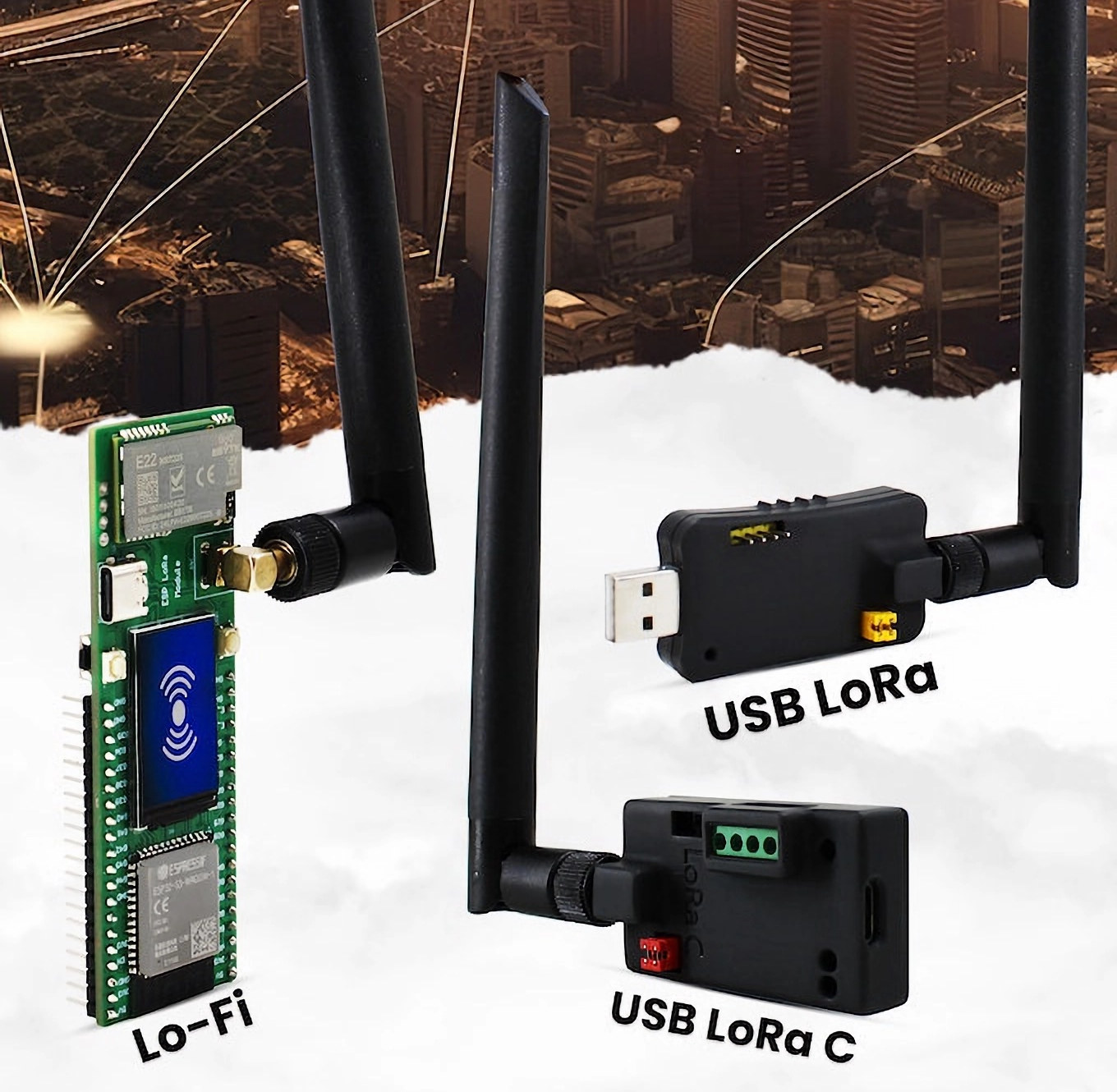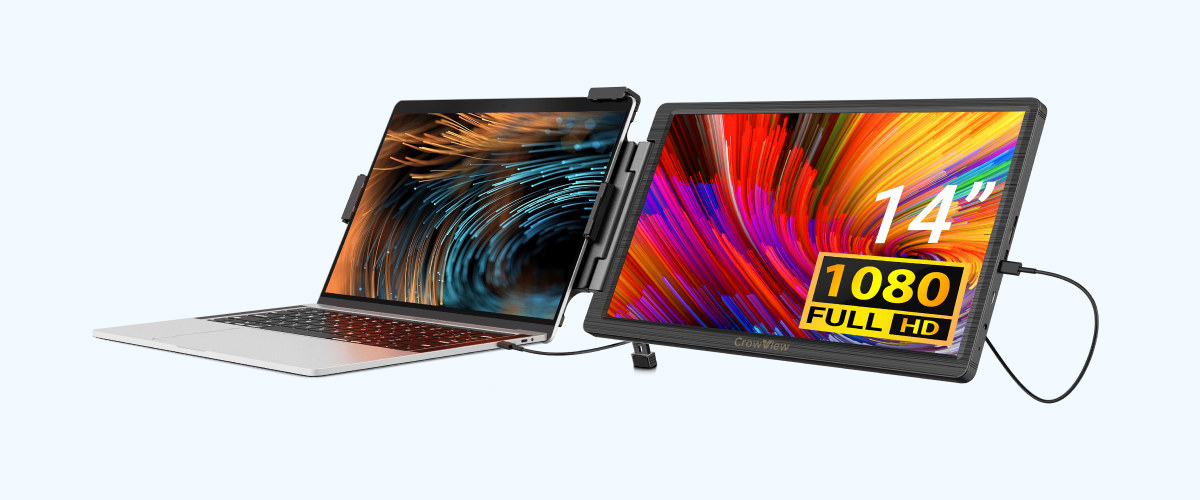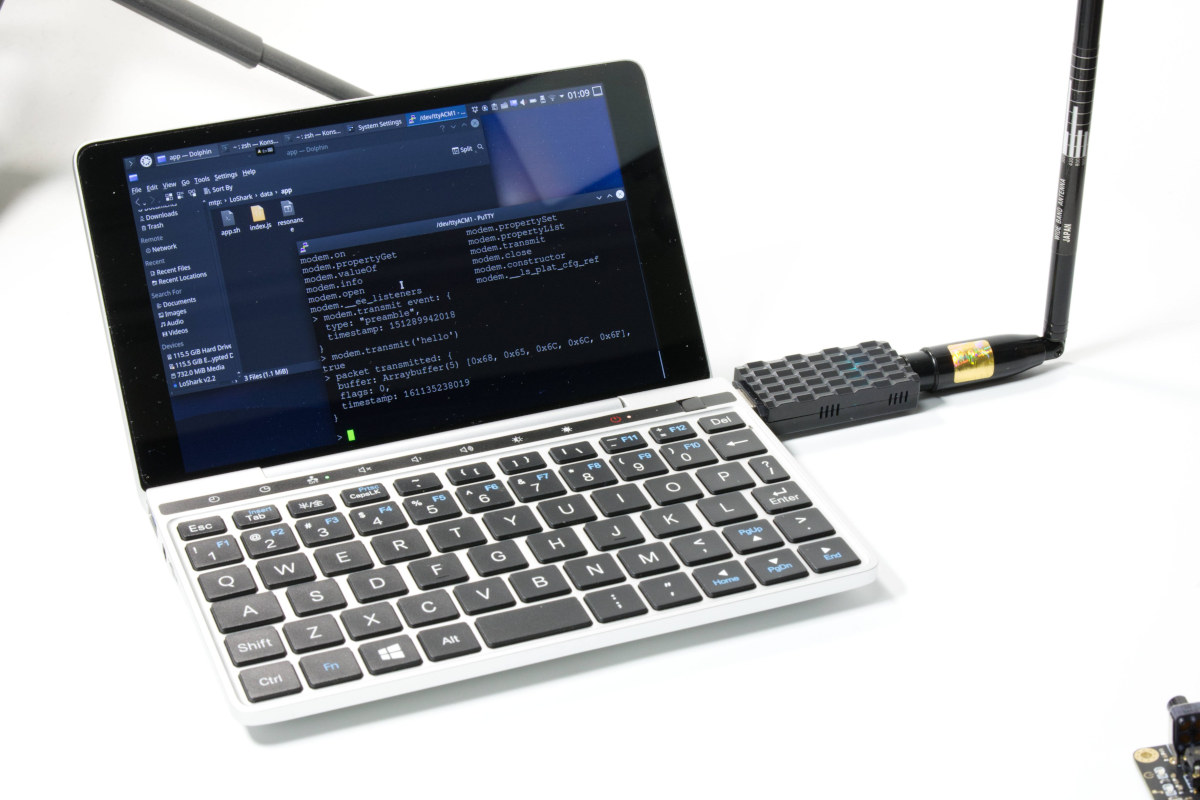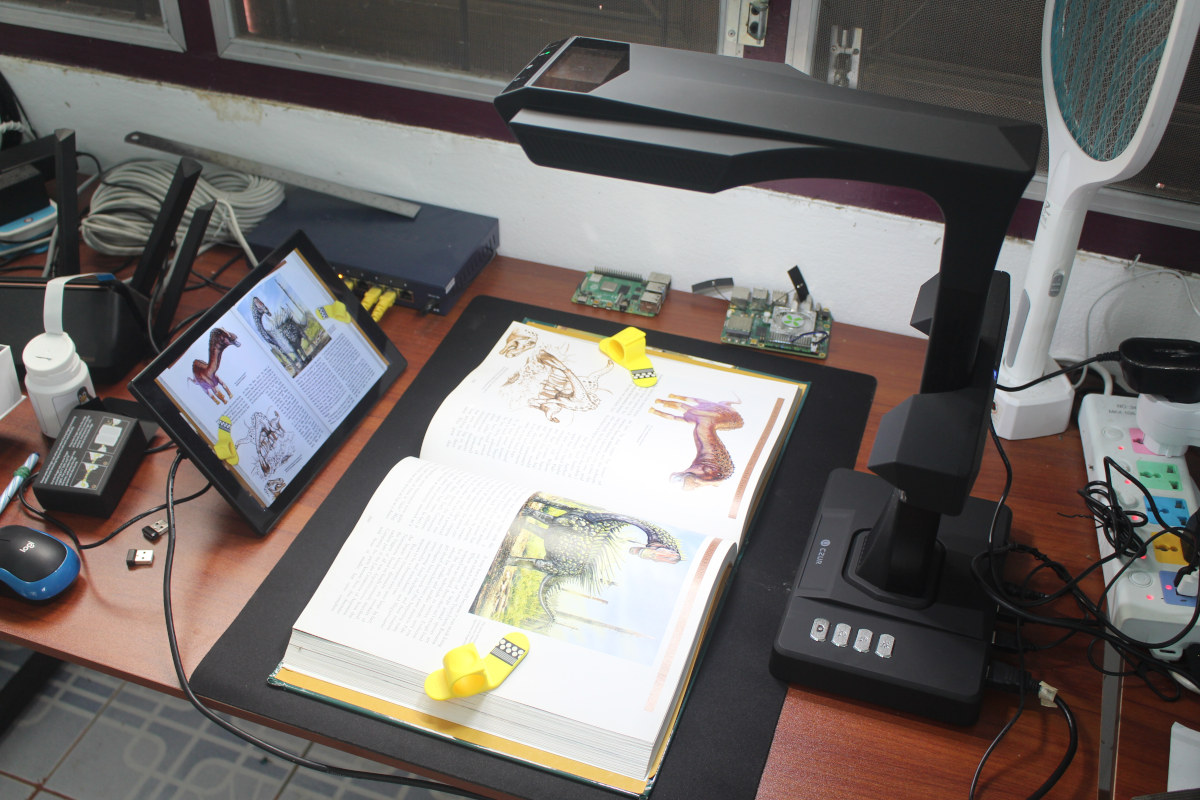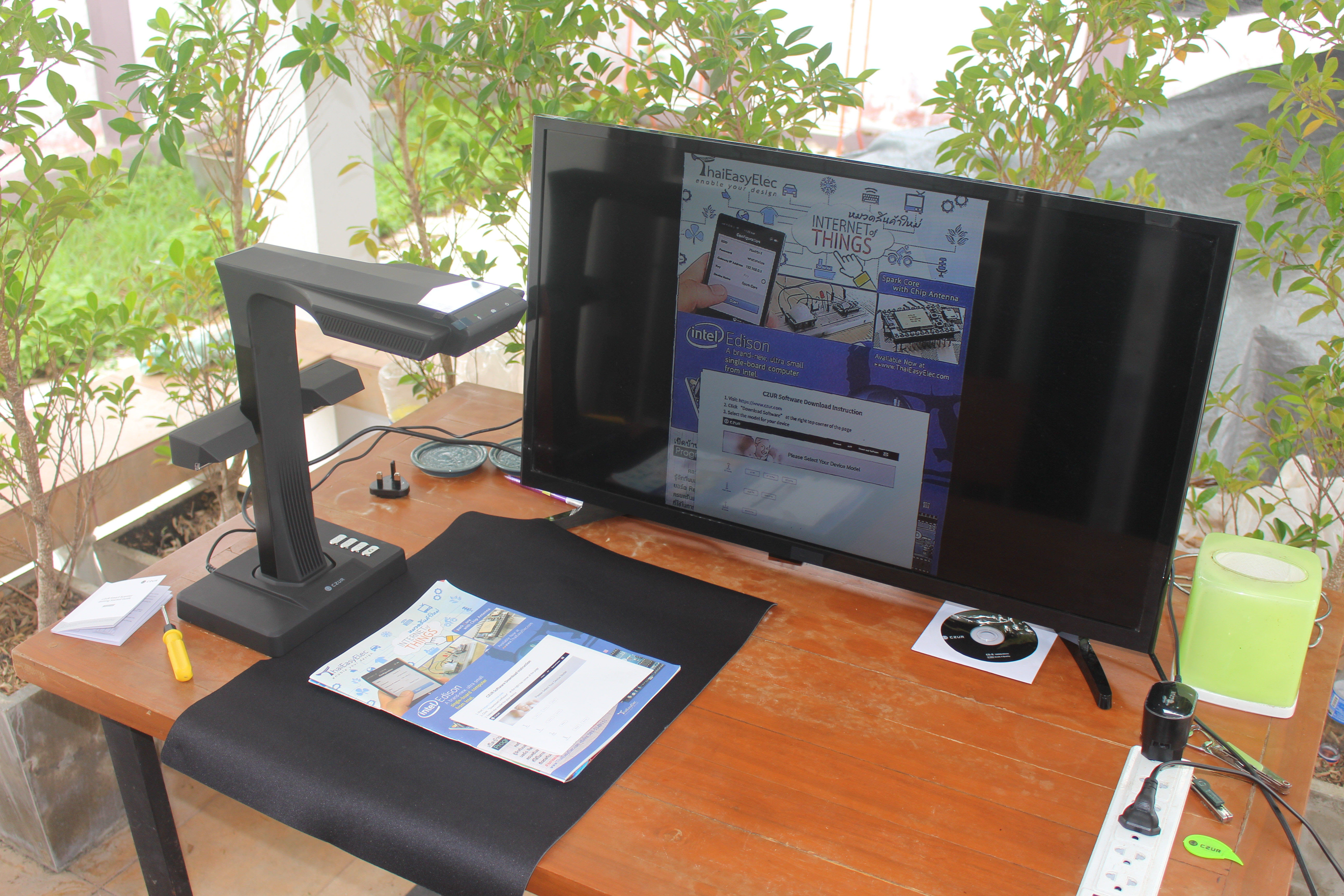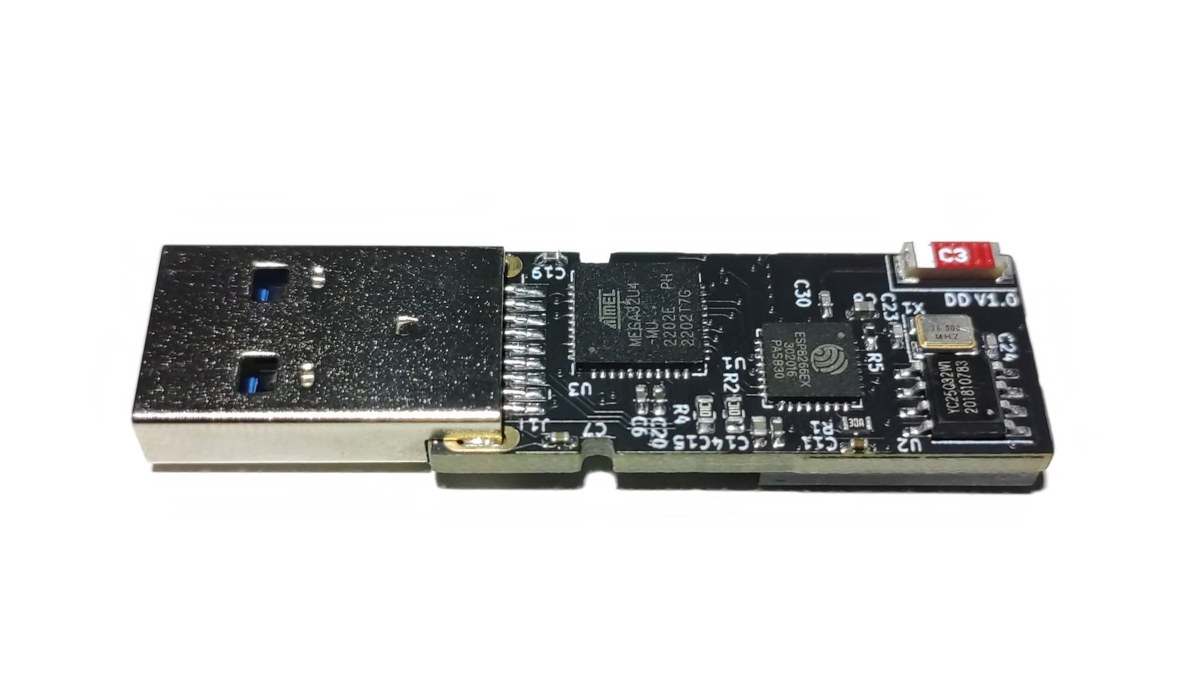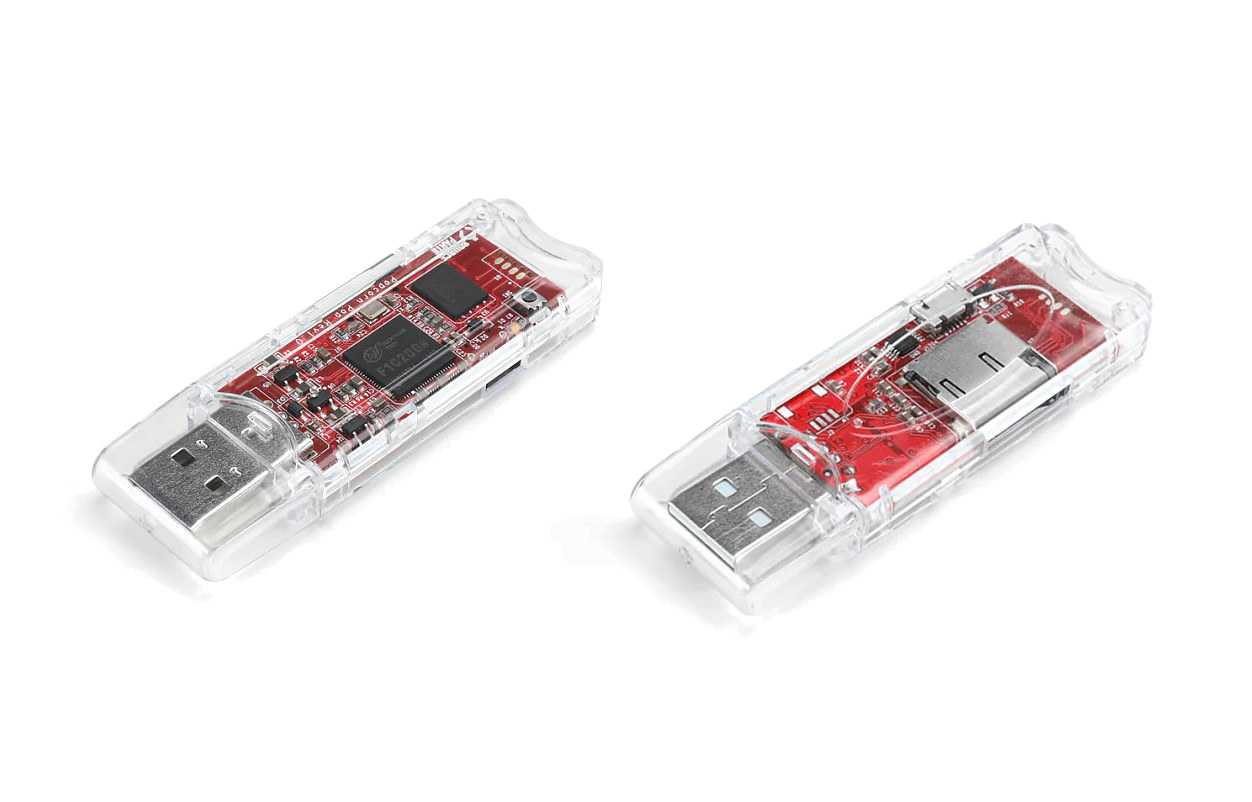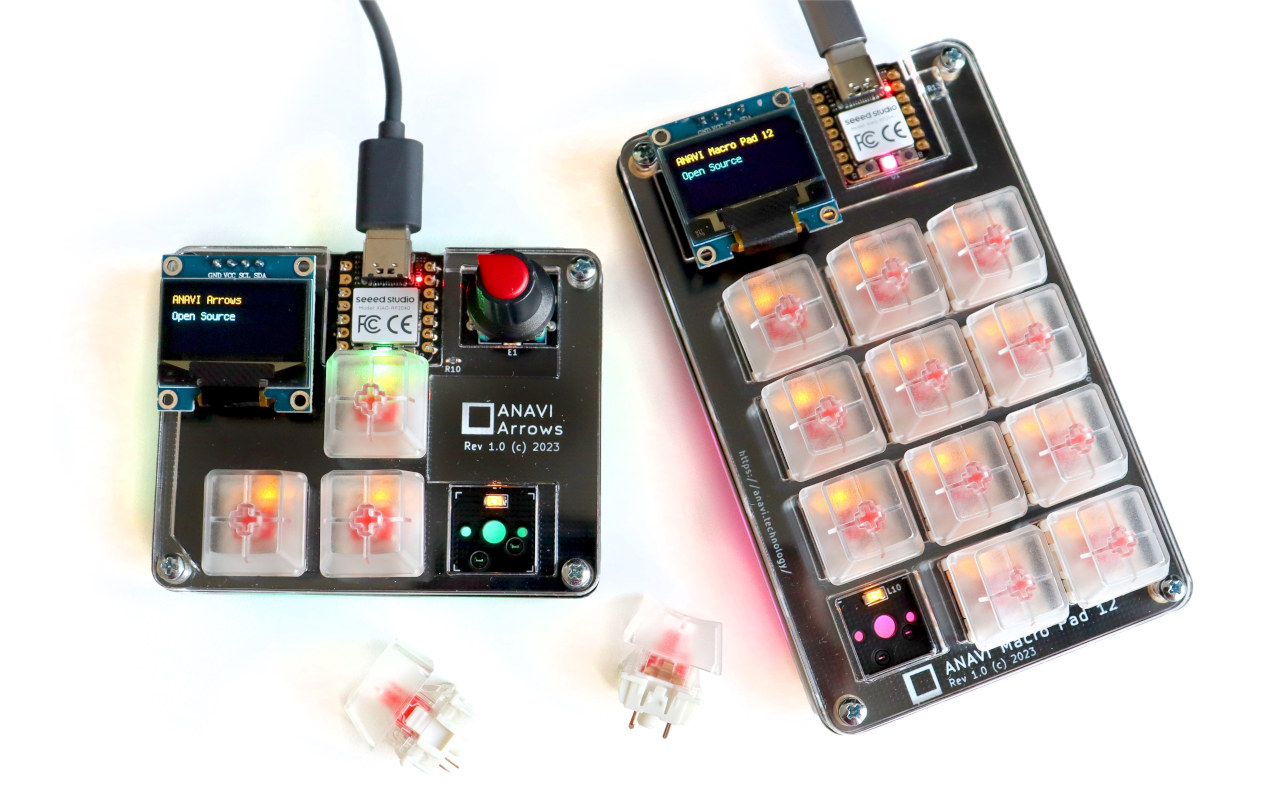SB Components’ Lo-Fi is an ESP32-S3 board equipped with a LoRa module for low-power long-range connectivity, and the company has also introduced two LoRa USB dongles with either Type-A or Type-C connectors. Lo-Fi specifications: Wireless module ESP32-S3-WROOM-1: SoC – ESP32-S3 dual-core LX7 microprocessor @ up to 240 MHz with Vector extension for machine learning, WiFi 4 & Bluetooth 5 LE/Mesh Memory – 8MB OSPI PSRAM Storage – 8MB QSPI flash PCB antenna Dimensions – 25.5 x 18.0 x 3.1 mm Unnamed LoRa module Tx power of up to 22dBm (160mW) adjustable by software Rx sensitivity of up to -138 dBm ISM bands – 433MHz, 868MHz, and 915MHz Range – Up to 5km range Data rates – 300 bps to 62.5 kbps RoHS compliance External LoRa antenna Display – 1.14-inch TFT display with 240×135 resolution USB – 1x USB Type-C port for programming and power Expansion – 2x 20-pin GPIO headers […]
CrowView adds a 14-inch portable monitor to your laptop for $115 and up (Crowdfunding)
Elecrow CrowView is a lightweight 14-inch portable monitor designed to be attached to your laptop adding a secondary monitor to it through a clamping structure that works with laptops having a 13-inch to 16.5-inch display. We’ve seen this type of laptop monitor extension for years, and you’ll find various models on Amazon. But the Elecrow is now offering the CrowView at a significantly lower price than competitors especially if you pledge $114.90 for the super early bird reward on Kickstarter. The regular price ($179) can still be interesting as in this price range you’d usually get an 11-inch or 12-inch display. CrowView specifications: 14-inch IPS display with 1920×1080 resolution, 60 Hz refresh rate, 400 nit brightness Compatible with 13-inch to 16.5-inch laptops with 4 to 8mm thick displays thanks to a telescopic snap 230° hinge enabling face-to-face mode. Ports Mini HDMI port for video input 2x full-featured USB Type-C port […]
Sudomaker LoShark L1 LoRa USB dongle runs Linux on Ingenic X1501 MIPS processor
Sudomaker LoShark L1 is a USB dongle with Semtech SX1262/SX1268 LoRa transceiver and a Linux-capable Ingenic X1501 MIPS processor with 8MB on-chip memory that serves as a LoRa debug tool that can use a JavaScript interface to access to all SX126x chip registers. The LoShark L1 USB key offers both LoRa connectivity and debugging capabilities such as packet capture (hence the reference to WireShark) and can operate either independently (standalone) or in conjunction with a PC as shown below with a mini laptop. LoShark L1 specifications: SoC – Ingenic X1501 MIPS processor @ 1 GHz with 8MB DRAM, 2200+ CoreMark, Memory – Optional 8MB PSRAM (Lyontek LY68L6400SLIT) Storage – 4GB MLC or 256 MB SLC NAND flash Wireless connectivity HJSIP HJ-68LR LoRa module based on Semtech SX1262/SX1268 with TCXO Support for 433 MHz, 868 MHz, and 915 MHz bands SMA-F antenna connector USB – 1x USB Type-A male […]
CZUR ET24 Pro book scanner review with Ubuntu 22.04 Linux
The CZUR ET24 Pro is a professional book scanner that works with Windows, macOS, and Linux, so I decided to review it in Ubuntu 22.04 since we are fans of hardware that can interface with Linux at CNX Software.
If you haven’t already, I strongly recommended reading the unboxing part of the CZUR ET24 Pro review, as we go through the specifications, show the various interfaces of the scanner, showcase the various accessories, and also try it out with the HDMI interface in presentation/preview mode. It will help you better understand the second part of the review, where we’ll connect the CZUR ET24 Pro scanner to a Ubuntu 22.04 laptop using the provided USB cable.
CZUR ET24 Pro book scanner review – Part 1: Specs, unboxing, and first try
CZUR ET24 Pro is a professional book scanner with 320DPI optional resolution (delivering up to 24MP images) that works with Windows, macOS, and Linux via a USB port, or even in standalone mode through an HDMI port that could be used for business presentations. When CZUR contacted me about reviewing a scanner, I was not sure it would be interesting, but then I was intrigued because it looks like a bedside light and I had never used this type of scanner. So I decided to give a go, and here I am with a review sample. It looks like it should be especially useful for people scanning a lot of documents or books as it’s designed for speed and should significantly improve productivity over a traditional scanner with a cover, while hopefully keeping the quality. But we’ll check that in the full review. CZUR ET24 Pro specifications Optical resolution – […]
Diabolic Drive is a penetration testing USB key with 64GB storage, ESP8266 and ATmega32U4 microcontrollers
Diabolic Drive may look like a 64GB USB flash drive and show as such when you insert it into your computer, but it’s actually a wireless keystroke injection tool with a Microchip ATmega32U4 8-bit AVR microcontroller and an Espressif Systems ESP8266 WiFi SoC. Egypt-based UNIT 72784 says their cyber security tool enables Red Teaming – the practice of rigorously identifying an attack path to breach a device’s security – as it behaves like a flash drive while being able to deploy keyboard strokes wirelessly through the ESP8266 WiFi MCU. Diabolic Drive specifications: MCUs Microchip ATmega32U4 microcontroller @ 16 MHz (5V) acting as a Serial Bridge Espressif Systems ESP8266EX microcontroller @ 160 MHZ (3.3V) with WiFi 4 support ATmega32U4 and ESP8266 are connected via Serial and I2C protocols thanks to an LDO regulator. Storage 64 GB flash storage up to 20MB/s read, 10MB/s write 4MB W25Q32 SPI flash memory o Antenna […]
Popcorn Computer PopStick – A $29 USB Linux computer powered by an Allwinner F1C200s ARM9 processor
Popcorn Computer’s Popstick may look like a USB flash drive, but it’s actually a USB computer running Linux on an Allwinner F1C200s ARM9 processor with 64MB RAM on-chip. The PopStick support USB gadget mode so it can appear as all sort of USB devices such as a scriptable USB Keyboard and Mouse, a mass storage device, or even an Ethernet-connected computer using USB Ethernet which you can access with SSH. PopStick specifications: SoC – Allwinner F1C200s ARM926EJ-S (ARMv5TE) processor @ 533 MHz with 64 MB Embedded DDR1 Storage 128 MB SPI NAND Flash for OS Micro SD Card Slot Both storage devices are bootable USB 1x USB Type-A connector with support for USB Gadget mode, so the board can be seen as a USB Ethernet, Serial, Mass Storage, HID (keyboard/mouse), etc… 1x micro USB connector for serial Console Power Supply – 5V via USB Type-A port Dimensions – N/A If […]
ANAVI launches CircuitPython-programmable Macro Pad 12 & Arrows mechanical keyboards (Crowdfunding)
ANAVI Technology has launched two more open-source hardware mechanical keyboards based on the Raspberry Pi RP2040 microcontroller, equipped with an OLED display, and programmable with CircuitPython: the ANAVI Macro Pad 12 with 12 keys and the ANAVI Arrows with four keys and a rotatory encoder. The new mechanical keyboards follow ANAVI Macro Pad 10 & Knobs input devices equipped with the same Seeed Studio XIAO RP2040 MCU module running the KMK firmware written with CircuitPython, but with different form factors and features. ANAVI Macro Pad 12 specifications: MCU module – Seeed Studio XIAO RP2040 with Raspberry Pi RP2040 dual-core Cortex-M0+ microcontroller @ up to 133 Mhz with 264KB SRAM, 2MB SPI flash, USB Type-C port Keys – 12x Gateron red, linear, non-clicky mechanical switches and transparent keycaps with yellow LED backlighting Display – OLED display connected to I2C slot (can be replaced with another I2C module) Host interface – USB […]


